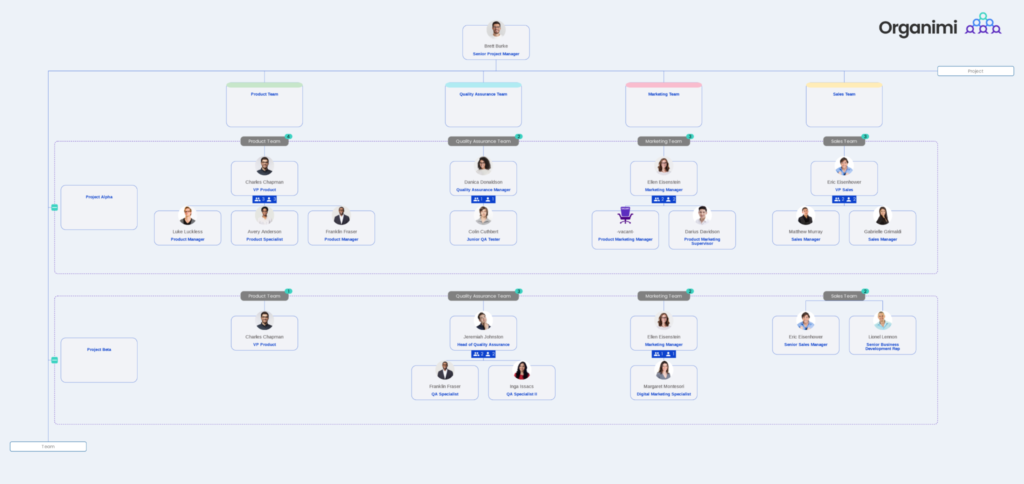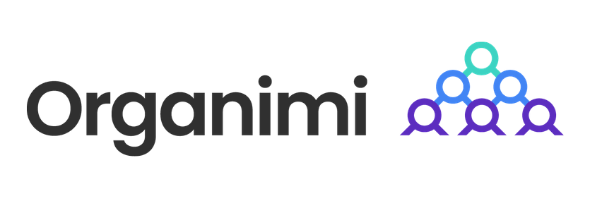Effective management sits at the heart of any organization’s success. When it comes to overseeing complex initiatives and achieving organizational goals, the terms “program management” and “project management” are often used interchangeably, leading to confusion. While both disciplines share similarities and contribute to the efficient execution of endeavors, they have distinct focuses and roles within an organization.
To help you understand the difference, here’s an analogy: You can think of projects like airplanes operated by project managers, who oversee the work of their team to achieve goals and arrive at a completed deliverable. In contrast, a program is like a collection of airplanes that originate in different places and run on different schedules yet are heading to the same destination. The program manager is the person responsible for all these planes, directing them all to their final destination.
In this article, we will explore the key differences between program management and project management, shedding light on their unique characteristics, responsibilities, and the ways in which they contribute to the overall success of an organization.
Project Management vs Program Management
We must first look at the difference between a program vs a project before we look at the different roles played by their respective managers.
Project: A project is a temporary endeavor undertaken to create a unique product, service, or result. It has a defined start and end date, specific deliverables, and a predetermined budget. Projects are typically focused on achieving specific goals within a limited timeframe, and they often involve a team of individuals working together to complete tasks and meet project milestones. Projects:
- Have a set of tasks with clear deliverables and deadlines.
- Relates to a single unit of work.
- Have a predefined scope that is limited to a specific output.
- Improve quality, efficiency, cost management, or customer satisfaction in a specific and predetermined way.
Program: A program is a group of related projects, subprograms, and activities that are managed together to achieve a common strategic objective. Programs are usually larger in scale and complexity than individual projects and may span a longer duration. Unlike projects, programs are designed to deliver broader benefits and outcomes beyond the scope of any single project. Programs:
- Unknown deadlines due to the large scale and scope of the work.
- Multiple deliverables with interrelated, evolving dependencies.
- A series of deliverables that are completed together.
- Pursue long-term organizational goals.
- Deliver long-term benefits and unlock new capabilities for the organization.
What is Program Management?
Now that we’ve cleared up the difference between a project and a program, let’s examine in a little more detail what program management is and why it’s necessary.
At its most fundamental, program management is a discipline that involves the coordinated management and oversight of a group of related projects, activities, and initiatives to achieve a common strategic objective.
In other words, program management is all about the bigger picture. It focuses on coordinating smaller project initiatives and efforts in a bid to realize the long-term strategic objectives of the program, and consequently the organization, through aligning project efforts, managing interdependencies, and optimizing resources to maximize the overall benefits and value delivered.
Why is Program Management Important?
Program management is needed because of the sheer scale and complexity of a program. Remember, a program consists of various projects which may be individually complex. Add all these together and you’ve got a serious need for high-level strategic management and direction that can oversee and coordinate its many moving parts.
As such, program managers are responsible for setting program goals, defining the program’s scope and objectives, coordinating project teams, mitigating risks, and ensuring effective communication among stakeholders. In contrast, without careful management of resources and other program elements, projects will begin to fall apart.
By providing a holistic view and strategic direction, program management facilitates the successful execution of multiple projects, enabling organizations to achieve their long-term strategic goals and drive significant organizational change.
What Does a Program Manager Do?
Program managers play a crucial role and are ultimately responsible for the effective oversight of all projects involved in their program. They are tasked with balancing the production of deliverables, decision-making, stakeholder management, and risk mitigation across the program. Typical responsibilities include:
Strategic Planning: Program managers are involved in the strategic planning process, aligning program objectives with the organization’s overall goals and vision. They define the program’s scope, establish strategic milestones, and create a roadmap for achieving desired outcomes.
Program Governance: Program managers develop governance structures and frameworks to ensure effective decision-making, accountability, and stakeholder engagement throughout the program’s lifecycle. They establish clear roles and responsibilities, set performance metrics, and monitor program progress.
Resource Management: Program managers are responsible for resource management and allocation, including personnel, budget, and materials. They assess resource requirements, make strategic resource allocation decisions, and ensure optimal utilization of resources across projects within the program.
Program Coordination: Program managers oversee the coordination and integration of multiple projects within the program. They ensure alignment of project objectives, manage interdependencies, resolve conflicts, and facilitate knowledge sharing and collaboration among project teams.
Performance Monitoring and Evaluation: Program managers establish performance metrics and key performance indicators (KPIs) to assess program progress and measure the achievement of program objectives. They conduct regular evaluations, track performance against targets, and implement corrective actions when necessary.
Overall, program managers are responsible for driving the successful execution of programs, ensuring alignment with organizational strategies, and delivering long-term value to the organization. Their role requires a combination of strategic thinking, leadership, communication, and project management skills.
Using Organimi for Program Management
Program management can be an enormous and complex task. Not only do program managers need to be highly skilled in leadership and communications but they also need strong competency in program management methodologies and strategic planning.
Keeping on top of all the moving parts and processes that form part of a program can be a challenge. Luckily, Organimi can help. Organimi is a powerful org chart builder that enables program managers to document and track plans, processes, challenges, and more in one place.]

Build your own program planning chart in minutes by importing a CSV or Excel file and see it come to life or, if you prefer, build your chart manually using our intuitive drag-and-drop interface.
Share it privately with select individuals or company-wide in a single click, choose whether to give users editing or viewing rights, and define which fields you would like to display while keeping others private.
Integrate using pre-built solutions using Microsoft (Azure, Excel, PowerPoint, SharePoint, Office 365, and Teams), Google Workspace, and Salesforce, or connect to any HRMIS, ERP, or other business productivity application using the Organimi Connect API.
Try Organimi now and decide later with a free trial, no commitment or credit card is required.
